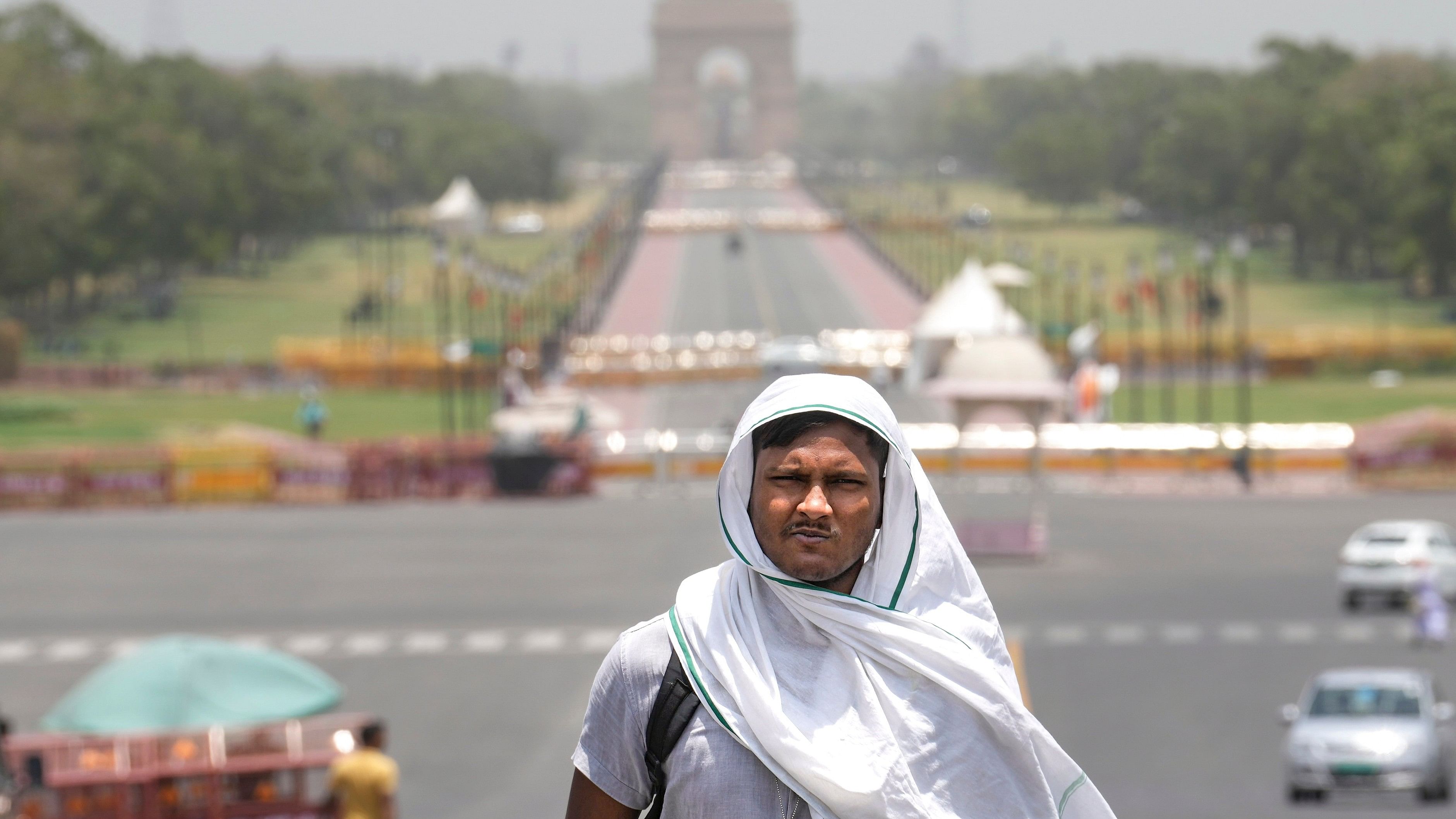
A man covers his head for protection from the scorching sun on a hot summer day in New Delhi.
Credit: PTI Photo
Climate change and global warming have pushed the world towards record breaking rise in temperatures and never-seen-before heatwaves. Asian cities have bore the maximum brunt of it all, with the relentless and scorching heat affecting millions of lives across the continent. The city at the forefront of it all? - New Delhi.
Citing data published by the International Institute for Environment and Development (IIED), CNN has reported that with a whopping 4,222 days clocking above 35 degrees Celsius during the previous 30 years, New Delhi tops the list of the world's hottest cities.
In the national capital, 44 per cent of days experienced temperatures above 35 degrees Celsius between 2014 and 2023, as opposed to 37 per cent from 2004 to 2013. From 1994 to 2003, the percentage stood at 35.
With the looming threat of rapidly worsening climate conditions, a lion's share of the biggest temperature rises were recorded in Asian cities - which account for approximately half of the most populous capitals of the world.
This pattern is demonstrated by the recent heat waves that have affected the whole continent, right from Southeast Asia to China and India. Because of its large population, extreme poverty, and high percentage of residents living in low-altitude areas that are subject to flooding, sea level rise, and other natural disasters, Asia is particularly exposed to climate threats.
The IIED report, released on June 28, also revealed that the number of days exceeding 35 degrees Celsius (95 degrees Fahrenheit) has increased by 52 per cent over the past three decades in the world's 20 most populous cities, which constitute more than 300 million people.
New Delhi recorded its highest ever temperature - a staggering 49.9 degrees Celsius - on May 29 this year. The relentless nature of this extreme heat has taken a toll on the country. Ranging from power supply deficit to severe water crises, heat related issues plaguing the common people are piling up day by day.
“Climate change is not just a future threat – it’s already happening and getting worse", said Tucker Landesman, a senior researcher of the IIED. "In just one generation, there’s been an alarming increase in the number of days of extreme heat affecting some of the world’s biggest capital cities - made worse by the urban heat island effect", he further added.